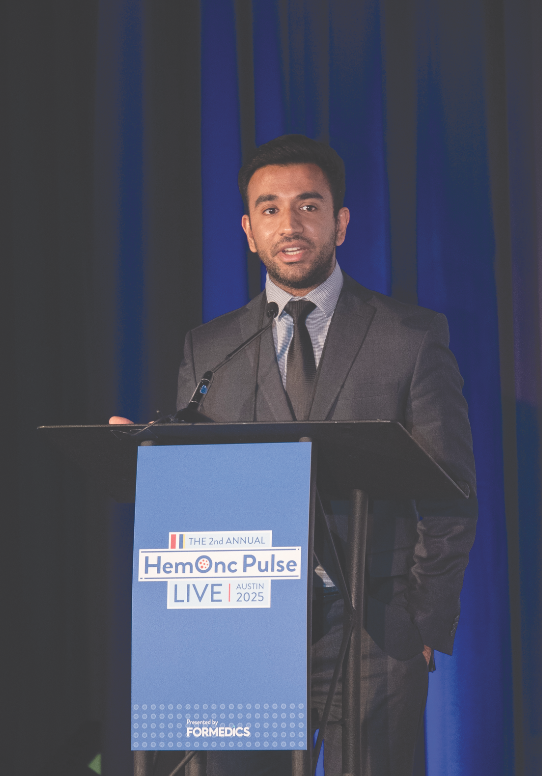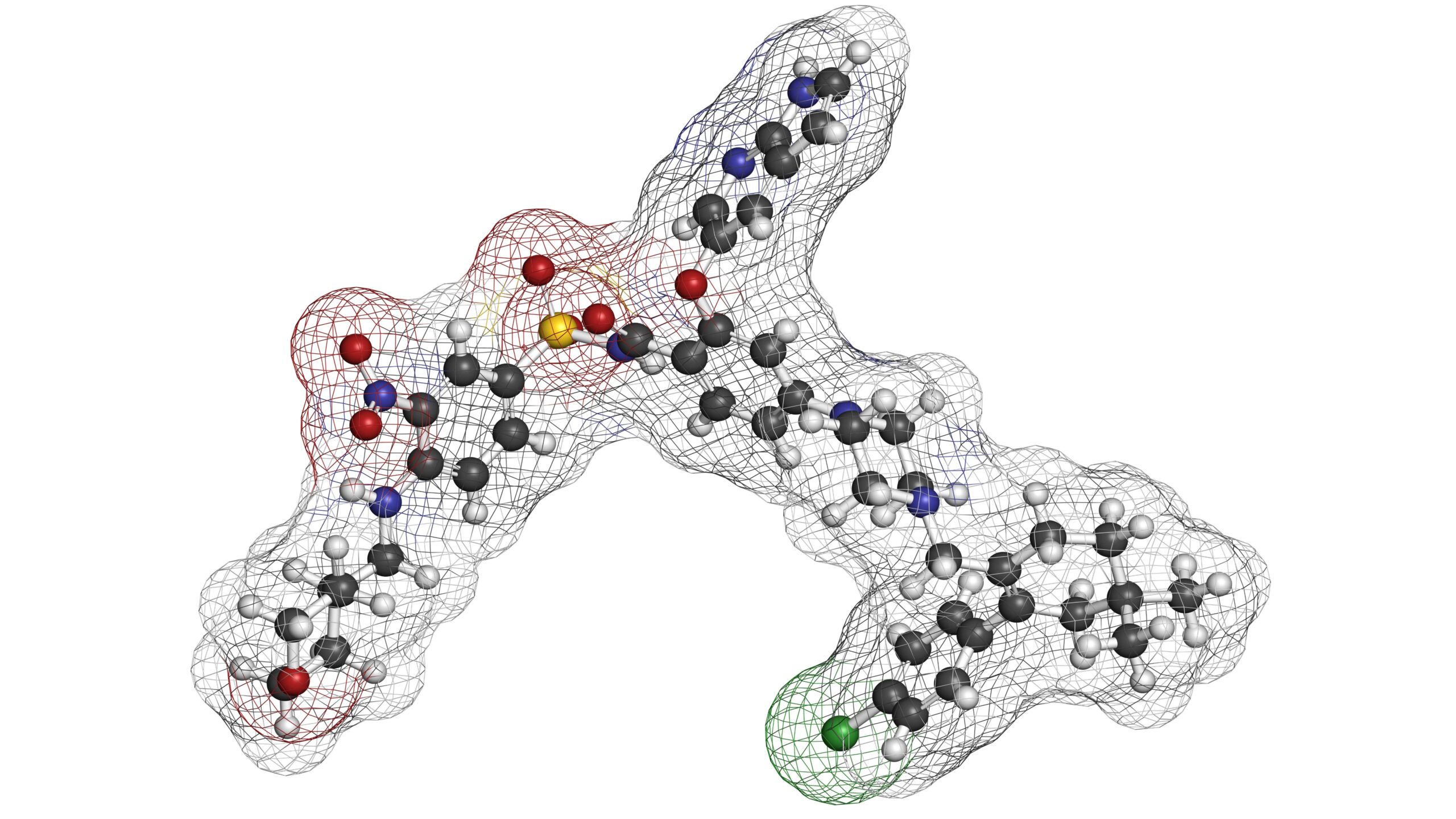
Treatment with CR1-02 (5-FU-miR-15a), a synthetic double-stranded mimic of miR-15a (miRNA), was well-tolerated and led to stable disease in patients with relapsed or refractory acute myeloid leukemia (AML), according to a study presented at the 2025 American Association for Cancer Research Annual Meeting.
“Since the discovery of microRNA in 1993 and the recognition by the Nobel Prize in 2024, there is still no FDA approved miRNA-based cancer medicine,” senior author and presenter Jingfang Ju, PhD, of Stony Brook University, told Blood Cancers Today. “5-FU-miR-15a will have the potential to be the first miRNA-based multi-targeted medicine to treat AML. Beyond AML, the 5-FU modified miRNA-based platform will have the potential to change the landscape of future cancer medicine.”
The phase 1, dose-escalation study used a 3+3 design to evaluate the safety and efficacy of intravenous CR1-02 at four dose levels: 7.5 mg, 11.25 mg, 15 mg, and 18.75 mg/administration weekly.
In 11 patients (average age, 70), CR1-02 was well-tolerated through 58 doses administered across each dose level. Chills during infusion, the most common adverse event, subsided after the infusion time was increased to 2 hours. Five patients achieved stable diseases as defined by the European LeukemiaNet.
According to single-cell profiling mass cytometry, at the lowest dose level of 7.5 mg, CR1-02 displayed molecular activity on known targets of miR-15a, such as BMI1, WEE1, and MCL-1. BAX, a pro-apoptotic protein, also increased after treatment.
After four doses of CR1-02, one patient achieved elimination of extramedullary pericardial AML disease but progressed in bone marrow after 8+8 doses of CR-001, followed by trametinib in another study.
“This is the first miRNA-based, multi-targeted agent to show efficacy in patients with relapsed or refractory AML,” said Dr. Ju. “It will be an important drug for future clinical trials to combine with other therapeutic agents to improve quality of life and survival benefit for patients with relapsed or refractory AML.”
Reference
2025 American Association for Cancer Research Annual Meeting. Abstract No. CT059 / 4.






 © 2025 Mashup Media, LLC, a Formedics Property. All Rights Reserved.
© 2025 Mashup Media, LLC, a Formedics Property. All Rights Reserved.